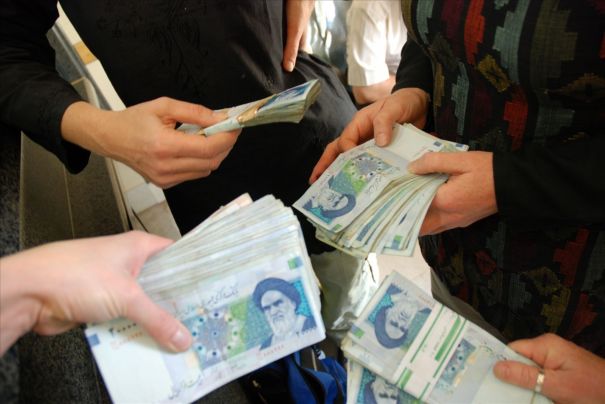In Iran’s economic blame game, the regime is guilty
IranMediaFocus
It is hardly a secret that the Iranian economy is in freefall. And rather than alleviate the deep-seated issues at the root of the situation, Iran’s leaders prefer to exert their energies on saving their own skins. The blame game has begun and fingers are being pointed in all manner of directions.
Make no mistake. Iran’s economic situation is incredibly serious. As the Associated Pressreported last week, “Those who went to work at the start of the Iranian week on Saturday saw their money shed a quarter of its value by the time they left the office on Wednesday. Signs of the currency chaos can be seen everywhere in Tehran.” Iran’s leaders have done their best to ignore the everyday economic hardships of ordinary Iranians, even as widespread street protests turned against them during the past few months. Now, there is no more hiding the harsh economic reality.

With that in mind, Tehran is hoping to control the narrative. For the country’s Supreme Leader, Ayatollah Khamenei, the United States is firmly in the cross hairs as the obvious target. As the BBC reported, Khamenei has singled out a shortage of baby nappies, blaming “the enemy” who “wants people to make angry with the government”. In an attempt to pull on the heartstrings of the world, Khamenei exclaimed “Imagine that in Tehran or other major cities, baby nappies suddenly become scarce. This is happening, this is real, this is not make-believe. Baby nappies!” And of course, the ‘Great Satan’ is to blame.
Although the renewal of Washington’s sanctions against Iran appears to have speeded up Iran’s economic decline, the United States is nothing more than a convenient bogeyman. As the BBC points out, there are plenty of potential culprits, as “Hardliners blamed government mismanagement, the government blamed US sanctions and businesses profiteering and those in favour of regime change blamed the Islamic Republic.”
In other words, it is open season in Iran’s blame game and shots are being fired in all directions. In fact, Iran’s leaders are increasingly turning on each other. In a dramatic series of events, the country’s Finance Minister Masoud Karbasian was impeached recently, by a parliamentary vote. Karbasian’s removal came just three weeks after Labour Minister Ali Rabiei was ousted in a similar process. During this period, President Rouhani himself was summoned to answer questions in Parliament and censured for the country’s economic plight. As Reuters’ Bozorgmehr Sharafedin reported, Rouhani’s defence reverted to a familiar theme, accusing Washington of a “plot”.
Of course, no Iranian leader wishes to admit fault for the unfolding economic tribulations of the Iranian people. However, some of the comments made by Iranian parliamentarians during the last turbulent weeks, are telling. Al Jazeera reported that one conservative MP, Abbas Payizadeh said “Inefficiency and lack of planning have nothing to do with sanctions.” Indeed, the real reason behind Iran’s economic woes is not hard to decipher – Many years of government mismanagement, of a regime which routinely prioritizes ideological foreign conflicts over the basic needs of its own people. Iran’s economic collapse didn’t happen overnight.
It is the natural consequence of a government which has increased military spending by 128% over the last four years, while watching Iranians become 15% poorer over the last decade. And yet despite the mess this has caused, Tehran continues to choose armed conflict over basic citizen welfare. It is a scandalous fact, that Iran’s seventh largest import between March and August this year, was nuclear reactor parts. Bananas and barley were eighth and ninth on the list.
The same tragic priorities were reflected by Garth Friesen, who put it recently in Forbes that “government representatives hoarded the upfront cash payments made to Iran when the [nuclear] deal was inked rather than distribute them to the people. There was no boost to domestic spending to help the citizens cope with critical issues… Instead, the money went to additional funding for the Revolutionary Guard.”
In covering Iran’s economic woes, the likes of CNN’s Nick Paton Walsh have opted to take the easy route – Using the headline “Iranians vent anger at Trump as the wheels come off their economy,” they choose to parrot the Tehran narrative. Blaming the White House might attract readers’ eyeballs, but it is also a convenient distraction for Iran’s leaders. Journalists and editors have a duty to dig deeper and to expose the truth – that Iran’s leaders have nobody to blame but themselves.
www.fotavgeia.blogspot.com

Δεν υπάρχουν σχόλια:
Δημοσίευση σχολίου